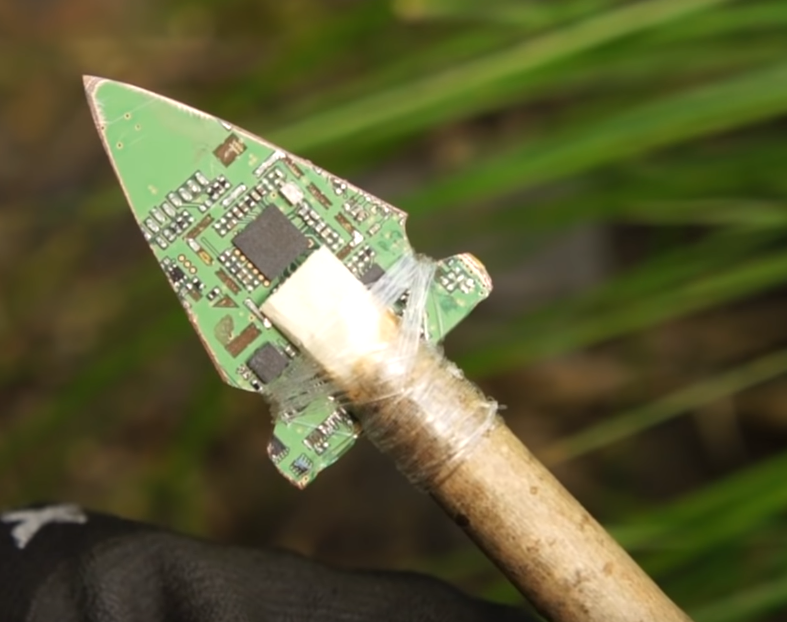By a variety of measures and in a variety of countries, the members of Generation Z (born in and after 1996) are suffering from anxiety, depression, self-harm, and related disorders at levels higher than any other generation for which we have data.
Well I could only read the first 2 paragraphs due to paywall, but it’s definitely the phones causing all this and certainly not late stage capitalism sucking the energy and empathy out of everything around us right?
I think the two (phones and late stage capitalism) are working hand and glove to fuck up the kids. Us older folks had a much easier time pretending things were okay because our pockets weren’t constantly buzzing with instant feedback and we weren’t continually forced to consume traumatic and stressful content. Sure, we had plenty of other problems, and each generation is going to deal with their own fair share of shit, but I do think this cohort has a much harder job avoiding the ugliest sides of humanity.
But it was still bad then, you just didn’t know it. It’s good now we know how bad the world is, maybe bad for mental health, but good if you don’t want to remain in your own bubble, unable to have any effect on the world. And individually, you still won’t have an effect on the world, but the more people that know and care about issues, the more likely they are to get fixed. Something the internet can help with.
i remember the fall of Berlin wall, i was very young but i do remember. I remember the end of that either/or era
i remember internet going global and accessible. I remember the early internet that was about information wanting to be shared. Not the internet of globalSupermarket + gov.net + selfie
i remember discovering new and exciting sounds that weren’t possible before sampler/sequencers
i remember scandals that actually ended political careers. I remember people disagreeing because their ideas of a better world was different and not because they hated people who think differently
it wasn’t “still bad then”, there was a sense of things getting “better”. Can we say the same thing today? Who thinks the world will be a better place in 5 years or 10?
Thanks for the paywall warning. I’ve opened the page in Firefox, clicked on Toggle Reader View immediately and could read all text. Here the end of the article :
spoiler
We didn’t know what we were doing in the early 2010s. Now we do. It’s time to end the phone-based childhood.
This article is adapted from Jonathan Haidt’s forthcoming book, The Anxious Generation: How the Great Rewiring of Childhood Is Causing an Epidemic of Mental Illness.
When you buy a book using a link on this page, we receive a commission. Thank you for supporting The Atlantic.
Nah, it’s probably the death of rock music.
Sure, it’s the phones and not the fact the Earth is burning while all the people with power are too focused on growing their money piles by exploiting people.
People can’t afford houses, kids and the planet might not have a future.
But sure, yeah, it’s the phones.
“If we take away their phones, they can’t know it’s all on fire!”
Yeet
It might be beneficial for younger kids to not be aware of every global catastrophe, don’t you think?
“Let us not prepare you for the world you’re born into”
I said young kids, not all kids. Learn to read.
You actually said “Younger kids” . Younger is defined as “having lived or existed for only a short time.”
Maybe you should learn about Reddings Postulates
Maybe you should learn about contextual communication. Most of us aren’t pedantic English majors
You mean in the sense where overexposure to news makes someone generally paranoid, combined with the fact that a massive fire in colombia is not likely to enrich their perceptions or help them understand the world around them any better?
Think about it, without the kids having a way to fact check everything they would have to believe whatever they say, and that leads to my favourite problem solving method, propaganda!
the size of the relationship is often statistically small, which has led some researchers to conclude that these new technologies are not responsible for the gigantic increases in mental illness that began in the early 2010s.
Anyway, here’s 8500 words about why we are blaming cell phones anyway.
(Surely it’s not also the terrible economic landscape, hyper-competitive education system, or the collapse of community institutions…)
It’s all of those. As a father of teenagers, I can definitely add a subjective opinion that phones are TERRIBLE for teenagers. It reinforces all their fears and multiplies all their false certainties.
false certainties
As a fellow father of teenagers, I agree and want to thank you for introducing me to this phrase. I didn’t have a simple phrase for “doesn’t care about school, thinks he will be a millionaire by age 20.”
One unfortunate aspect I’ve found is that (n=1) a grounding involving taking away phone time besides one hour in the evening until grades improve doesn’t provide all that much motivation to improve grades. An allowed hour because complete social isolation is not a helpful punishment.
It does, however, greatly improve mood and ability to focus and think through problems. I had the same false certainties as a teenager - that’s a failure on us (the parents), and goes beyond smartphones, but grades are important.
‘Grades are important’ is not something I ever thought I would say, but as an old person I understand now… It’s not the grade itself, it’s what the grade represents - foresight, seeing the bigger picture, and effort and commitment to something.
%90 of the teenagers who said they are depressed also have phones. Much significance, many r, wow p value
Sure the phones are to blame and not the shitty world with never ending economic crises and wars everywhere and probably unhappy, stressed out parents fighting all the time.
Also, the fact that technology makes it easier to actually collect data on stuff like depression etc and people are more encouraged to speak about it, as opposed to previous “it’s life, man up and take it” generations’ attitude…
Unethical twin studies are illegal for very good reasons, but I’d be curious about the results of the following hypothetical (albeit flawed) study:
-
Twin 1: raised in a small village fishing/farming community that disallows internet access, but allows full unfettered access to a vast library.
-
Twin 2: raised in a heavily populated coastal city with a smartphone from age 6.
A constant, instant stream of knowledge of horrific things happening hundreds or thousands of miles from you, and the barrage of social media toxicity, must come a negative mindset about the world. I don’t see any way it doesn’t. Sure there is wholesome and humble content on every platform, but the vast majority is either neutral or negative, and negativity generally spreads much faster than neutral or positive; it’s the human condition.
It affects everyone, but your reality will be much different if it’s been affecting you since you could, quite literally, remember.
I’ve seen multiple grassroots efforts of insightful teens who recognize this and are going dumbphone-only. Those kids are the future I’d place my bet on.
-
Social media is designed to be a vice. Its not suprising it causes depression
When you link page, please make sure that you dont link its paywalled version or at least paste article contents into post’s text

Here you go friend:
This article strikes at a very salient set of points about smartphones and social media. As someone that specifically tries to only use federated social media because it avoids some of these dark patterns, I certainly agree with. I also use my smartphone without any notifications turned on, ever.
Unfortunately the author has a few paragraphs that miss the mark and strike me as coming from more of a centrist or right-wing “kids these days are too soft” which feels very off-base and disconnected from the issue. For example:
This is why life on college campuses changed so suddenly when Gen Z arrived, beginning around 2014. Students began requesting “safe spaces” and trigger warnings. They were highly sensitive to “microaggressions” and sometimes claimed that words were “violence.”
The scare quotes around microagressions, a genuine issue faced my marginalized communities, is really uncomfortable and gives an unfortunate perspective on some of where this author is coming from.
Putting that aside, I really do feel like most of what is said here is on point. Reducing social media use is imperative. Designing smartphone UX that doesn’t shove notifications at you would also be a good idea. Getting younger people involved in communities and forming friendships is incredibly important.
Indeed, that’s why I don’t trust any of these “kids these days” articles. Have they considered that the world is shit and their generation is making it worse and all the kids can do is watch isn’t good for their mental health?
I use notifications, but the only apps that can send me notifications are either ones that use UnifiedPush, or have some sort of notification service of their own. So, most of the apps on my device do not send me notifications, and there are only a very few that will. Lemmy (through Thunder), Molly, and Feeder are the big ones that notifications are allowed on. Even ProtonMail doesn’t support UnifiedPush so i have to check email manually.
Unfortunately the author has a few paragraphs that miss the mark and strike me as coming from more of a centrist or right-wing “kids these days are too soft” which feels very off-base and disconnected from the issue.
Welcome to The Atlantic. It’s telling they think all these issues are because of phones and not other aspects of society or something like the looming, ever present threat of climate change.
It’s basically The Economist lite at this point.
I hear all the time about people turning their notifications off and it feels so bizarre. Do you guys keep an internet connection on at all times? That just feels so bizarre and counter-intuitive… I saw several people around me that don’t ever turn off the connection and that gives me massive cognitive dissonance.
presumably the idea is just to use/interact with the device on one’s own terms, rather than being harrassed by it into engagement?
i do both, but they’re different things.
Turning the internet on only when interacting with device does exactly that. That seems like the intuitive thing to do - yet I see people with it on all the time and it feels very bizarre.
Meh…it’s a terrible article full of conjecture and frankly shitty casual causation.
The reason kids these days have higher rates of self harm and suicide isn’t digital. They’re getting fucking shot at when they go to school.
The parents are hyper aware of this and are overly protective. The kids aren’t going out after dark to cause havoc or just hang out with their friends any more.
There’s also a severe culture war going on between liberals and conservatives across the globe that’s distinctly split previous social groups.
None of this is due to a kid holding a smart phone. It’s down to really shitty adults doing really shitty things and then blaming the phone for exposing kids to said shittiness.
This article sucked.
By a variety of measures and in a variety of countries,
Getting shot going to school is an American problem.
Your comment sucked.
Your comment is equally guilty of assigning blame to something without any strong evidence or similar.
Without actual studies looking into it it’s all conjecture.
I have to disagree with most of that.
Raising a kid right now is weird, the way they interact with tech is nothing like when we were kids. I was lucky growing up in the 90s with a computer, I could play with it all day and never get into any kind trouble it was just video games and poking around, seeing what it could do. I think having access to a computer at such a young age was transformative and wonderful.
But today, there’s so much trouble to get into, it’s crazy. I need to lock down that computer for my kid, there’s not enough parental control software in the world to make it safe for a defiant child, so I just can’t give him free access to the computer. I log him in for every session and make sure he’s monitored the whole time (which is exhausting).
He had access to some public Minecraft server for a while and initially I was like “this is fine”, but it was like 5 days before he was telling people to kill themselves in the chat and yelling ethnic slurs into his headset… he’s 7.
I truly dread having to deal with him interacting on social media. It’s going to be ugly.
Edit: I should clarify, this article is garbage, I’m not sticking up for it. The problem is not kids these days or bad parenting, it’s just a more complicated world. Social media, predatory tech companies, consumerism, polarized politics, all this crap adds up to a more complicated world, more riddled with potential landmines than ever before.
I’ve been dreading this and it saddens me to hear from you that my worst fears were correct.
I’ll just take solace in the fact that I had 30 year head start and that my tech-fu will hopefully stay one step ahead of my 1-year-old
Yeah, the technical problems are also pretty frustrating. I’ve been an IT guy for a long time, and I knew that I a second hand iMac would be a great machine for him, so that’s what I got. But unfortunately apple has abandoned their support for 32bit applications, seriously slashing their library of software. So I’ve stuck to an older Mac OS that does still support it. Steam has a “family view” mode and with that I can easily curate my own huge steam library and allow him to play appropriate games. Except of course, that about 2/3 of that library will be unavailable soon, as with future steam updates they will not be supporting the last macOS version that still runs 32 bit programs. Sigh.
I already tried installing Linux mint on that Mac and it was a nightmare. Linux doesn’t really do parental controls, at least not out of the box. The only silver lining was that at least when he clicked on every single web link he found, the dozens of malicious .exe files he downloaded won’t run on Linux.
But I guess to reassure you, the tech can be hard, but the kid doesn’t have to be. Our situation is a bit extreme, probably atypical. We adopted a 6 year old, so we have a lot of problematic behaviors, distrust, and defiance to train him out of. That shit is hard. But if you can build love and trust right from the start, you can set norms for tech usage and behavior. It’ll be ok.
But I do fear social media, it looms in our future…
He had access to some public Minecraft server for a while and initially I was like “this is fine”, but it was like 5 days before he was telling people to kill themselves in the chat and yelling ethnic slurs into his headset… he’s 7.
The battle is real, I’ve heard and seen things out of my kid the same age that left me speechless. Kids think that because it was on the screen or in their headset 100x that this must mean it’s ok, and with the number of people who just give it a pass by not paying the least attention…
Formative years are no place for such anarchistic environments, particularly when they’re used as an unmonitored substitute for actual engagement.
They’re getting fucking shot at when they go to school.
American Defaultism
Did you read the article? In the first sentence it’s literally stated that the data used is of adolescents from the USA.
It’s about American kids.
The article is literally about American kids, from the perspective of Americans with an audience of Americans.
If someone it’s interested at reading about the effects of TV and internet into modern culture you should read a book named Homo-videns by Giovanni Sartori.
Beside the book, I believe the boom of ADHD diagnostics could be related to modern technology use and its effects on brain development, psychological and emotional.
and it’s effects
Yes, it is effects.
Only available in Spanish ☹️
Yeah I have read it in Spanish, thought there was an English version, maybe an unofficial translation?
Also, amusing ourselves to death
Adhd is not something environmental. It’s genetic
we know it’s genetic for sure. but we don’t know if it isn’t enviormental as well, it’s rather hard to check, but to confidentiality claim that it definitely isn’t is silly
That’s how science works. We don’t just consider things as true just in case they might be true
Casting doubt on environmental factors without conclusive evidence simplifies a complex issue. Science thrives on openness to new data, not dismissing possibilities without thorough investigation.
Personally, I don’t think you should be telling folks “how science works”.
No that’s not how it works. If you have a theory, posit it, test it, and peer-review the tests. If you (or someone else) won’t do that, you can’t just muddle the waters like this. This is how anti-science works.
Them:
I believe
They admitted it’s just a theory.
You:
Adhd is not something environmental
Alas, the only definitive assertion in this comment chain. It has been proven that there is a genetic component to ADHD, not that it is exclusively a genetic disorder.
I also believe ADHD is partially environmental. I have diagnosed with and am treated for it.
It’s not anti-science to believe something that hasn’t been disproven. It is anti-science to believe something that has been disproven (e.g. climate change-denying loons).
They admitted it’s just a theory.
You don’t just “I have a theory that aliens caused it” and then start spreading it around like the OP i Was responding to did.
It’s not anti-science to believe something that hasn’t been disproven.
By that argument it’s not anti-scientific to believe in Gods and Astrology…
You’re literally doing the thing you accuse others of—jumping to conclusions without full evidence. Declaring ADHD purely genetic, while ignoring potential environmental factors, is a leap without scientific backing. It’s not about muddling waters; it’s about acknowledging our current limits and exploring all possibilities. That’s the essence of true scientific inquiry.
I believe things that are proven. Claiming ADHD is environmental without proof is on the same scale as “Vaccines cause Autism” and is used to claim shit like “Everyone has ADHD these days” or find something to blame for “causing ADHD” without ever supporting actual people with ADHD. The OP was literally using this exact argument to blame electronics for causing ADHD! This is muddying the waters and is not helping people with ADHD at all and is probably just harming them.
We don’t just consider things as true just in case they might be true
That’s literally what you did in your previous comment when you said that ADHD isn’t environmental. You made a statement of fact about something unproven. By your own logic, your approach is unscientific.
You could say “We haven’t proven that ADHD is influenced by environmental factors,” that research is ongoing to determine the effect of environmental factors, or point out that much of the evidence suggesting environmental factors could simply be correlation - or in some cases that the causal factor is reversed, i.e., that the cause of the environmental factor is the parent/child having ADHD rather than the other way around. But simply saying that ADHD is only genetic is, to be succinct, wrong.
neuroplasticity
Yeah, give kids easy to use pocket computers to access social media curated by algorithms designed to increase anxiety/engagement and “games” that are single-player gambling simulations, all of which harvests their data just to better learn how to manipulate them, and wonder why kids feel anxious, isolated, or depressed.
This hurts the over-25s too, just to lesser degrees because their brains are fully developed.
https://archive.is/Acnze unpaywalled
Da real MVP.
Great article. I agree with everything the author said.
For those pissed off cause of the paywall:
I’m tired of every few years the goal post for where one generation ends and another one begins keeps moving around. I demand that there be a ratifying organization that determines officially when generation s begin and end. So say we all!
Generations are (mostly) made up. So of course they’re going to shift around a bit while we all try to figure out what major world event or collective experience defines a particular cohort.
Youn people are dangerously addicted to social media validation, definitely it goes bad…
What about thr costs of a TV based life?
TV didn’t mediate your social relationships.
TV doesn’t give you feedback. It’s purely passive. TV isn’t always on. It can be turned off or walked away from. TV doesn’t fit in your pocket (well, outside of those shitty portable TVs that used 8 batteries every 2 hours) and go everywhere with you. TV doesn’t have your friends on it (unless you live in LA). TV doesn’t have random people from different countries you’ve never heard of tell you, specifically YOU, that you should kill yourself for some embarrassing thing you did.
TV does have negative impacts on our lives, and there are costs that I had on my life that my parents had less of (they still had TV, just black and white with only 3 channels). I definitely spent more time indoors growing up and know less about how to do manual work than my dad. I also know more about the world in general and am open to more ideas than my parents.
know less about how to do manual work than my dad.
Funny, this is the opposite for me and my Dad, because I very much took advantage of all the free knowledge available on the Internet to improve my skills in that area.
He’s the kind of guy to put WD40 and spray foam on everything to “fix” it, while I’ll look up proper replacement parts and the right way to fix something.
I’m comparing TV kids vs 50’s kids, not internet kids vs TV kids. I didn’t have the internet until I was 18.
It’d be weird after half a century of tv, if suddenly in the 2010s it somehow escalated all the self harm/suicide stats.
This study found a link between screen time and autism by looking at TV exposure among very young children, nevermind phones and tablets.
https://www.earth.com/news/toddler-screen-time-linked-to-atypical-sensory-behaviors/
It makes sense in a way. How we process the world might be a bit messed up with we were exposed to lots of bright shapes and loud sounds doing impossible things before our senses were fully developed.
Sorry, but that’s not what the actual JAMA research study says:
Greater early-life digital media exposures may be associated with atypical sensory processing. Further research is needed to understand why early media exposure is associated with specific sensory-related behaviors, including those seen in autism spectrum disorder, and if minimizing screen media at a young age can improve subsequent sensory-related outcomes.>
To me, making the jump to say “Screen time directly linked to autism and ADHD” based on the data in this study is like a research paper noting “American football playing is associated with specific types of head trauma, including the types seen in car accident victims, but further research is needed to understand why” and then writing an article saying “AMERICAN FOOTBALL PLAYING DIRECTLY LINKED TO CAR ACCIDENTS!!!”
Here is a link to the actual research paper instead of a badly written sensationalistic article if anyone is interested:
https://jamanetwork.com/journals/jamapediatrics/article-abstract/2813443
What does the paragraph above the one you posted say? The paragraph under the header “Findings”
It says absolutely nothing about autism and ADHD, as you can see:
Findings: In this cohort study, early-life television or video exposure was associated with atypical sensory processing in low registration, sensation seeking, sensory sensitivity, and sensation avoiding domains of the Infant-Toddler Sensory Profile, after controlling for perinatal and demographic variables; results differed by age at exposure.
I copied and shared the portion of the summary that provides interpretation for the findings because it’s the only place where autism is noted, ADHD is totally absent.
I mean, if you think that they aren’t talking about ADHD and autism there, after reading the article and the study, well okay then.
The paper comes as close to saying ‘direct link’ as these papers ever do. It’s quite difficult to prove a direct link and there are consequences for using that language inaccurately, when you’re publishing in a respected journal (at least there is supposed to be)
Pop-sci articles are usually going to try to hook readers with their headlines. Not being beholden to the same standards, they are free to read between the lines, as it were. One could say that because it’s not held to the same standard, it’s BS but there’s a lot of substance there to refute. It not an op-ed piece.
Its an important article that shouldn’t be ignored (there are other sources if you don’t like that author,) and if people want more details, they can get to the JAMA investigation from the link provided at the end.
I think you are forgetting that correlation does not imply causation. I know it gets said often around here, but apparently it’s because people don’t understand what it means.
Is there an atypical sensory response that appears to increase with television exposure in young children according to this study? Yes.
Can an atypical sensory response be a part of the diagnostic criteria for autism? Yes
Does this study, with its limited criteria and scope, make any viable substantive connection between television exposure and autism? No.
Because of the (understandable) limitations of the research criteria, they aren’t even able to prove that less television exposure would improve these outcomes, and they readily admit that. Is it because “THE MAN” won’t let them TELL THE TRUTH about what is REALLY going on, or is it dangerous, misleading, and unscientific to say things that can’t be proven as if it’s fact?
As someone who has worked and continues to work with several doctors in a medical research environment I can assure you that there is a fair amount of bias at play in these types of studies and money is often the driving force. I personally have seen two lead research physicians, one I had performed testing for, get quietly “asked to leave” our institution when it was revealed that they had a private stake in a medical company that they refused to disclose when testing their products.
The point I’m trying to make is that bias in research is bad and publications need to be doing more to defend against it, not less. “Reading between the lines” in research has led to countless people being injured and killed. For example, Andrew Wakefield was struck from the UK medical registry and barred from practicing medicine after England’s GMC found that Wakefield had been dishonest in his research in his ‘98 paper published to the Lancet claiming a connection between vaccinations and autism. They also determined he had acted against his patients’ best interests, mistreated developmentally delayed children, and had “failed in his duties as a responsible consultant” in order to earn as much as $43 million a year selling testing kits. Despite this and no other researchers being able to reproduce his findings this dangerous misconception still lives on when people like Robert Kennedy go on Joe Rogan and help us “read between the lines” by regurgitating this self-serving and harmful bullshit narrative, encouraging parents not to vaccinate their kids.
I don’t normally reply like this but i’m not wasting time on composition.
I think you are forgetting that correlation does not imply causation.
Really? Then I think you didn’t read or understand my previous reply.
or is it dangerous, misleading, and unscientific to say things that can’t be proven as if it’s fact?
What is dangerous, misleading and unscientific about alerting parents as soon as possible that screen time has been linked to atypical sensory processing, the most popularly known examples by a country mile being ADHD and autism? Have other studies shown screen time to be beneficial to young children? Who are you shilling for, Sesame Street? lol
I would argue that it’s unethical not to inform parents using terminology that they are familiar with, even if it is not going to be accurate in each case.
As someone who has worked and continues to work with several doctors in a medical research environment
I was wondering when the appeal to authority would come. Your assurance, as an internet rando, is meaningless. You oughta know that already.
“Reading between the lines” in research has led to countless people being injured and killed
Except pop-sci magazines aren’t research.
And finally, you’re statements about research bias and the crap about Wakefield, Kennedy and troglodyte Rogan is false equivalence and obvious baiting. See sentence above. Unlike the situation you describe, you haven’t called into question this research, only the article.
I guess we’ll know eventually if we should’ve been warning people away from screen time for young kids a lot more forcefully.
Ok, I admit my last reply was a little scattered because I wrote it over the course of half a day, so I’m going to attempt to deescalate things and do a better job of explaining my perspective without getting so lost in the weeds.
Feel free to disagree with me on this point but it sounds to me like we have a misunderstanding about what atypical sensory processing is. Atypical sensory processing is a symptom of autism and may be associated with ADHD, but they are not types, or examples of, atypical sensory processing. Atypical sensory processing is it’s own stand alone issue and is not always related to ADHD. Furthermore, it’s just one part of the spectrum of issues that need to be identified for a formal autism diagnosis, which is why I was adamant that insisting that one must mean the other is present, in my opinion, is inappropriate and misleading.
I would also like to argue that using the proper terminology is important in making sure that data isn’t misunderstood. I feel that it’s just fine to note what the studies findings are, which is that screentime can be damaging to young minds, without evoking ADHD and autism unnecessarily.
I do want to apologize for making an unnecessary call to authority and I can see how that may have come off douchey. The point I was attempting to make by doing that is that researchers can’t always be trusted not to put their thumbs on the scales in their research summaries knowing that people will jump on certain buzz words and run with it to make their study get more clicks. I know because that’s happened with studies I’ve been a part of (again, I realize you have no reason to believe me. Just explaining what I was attempting to convey.) Thankfully, they have to be more careful with the actual data documentation, but even then depending on the publication there’s wiggle room. Because of this fact, I think it’s important that we read less into these types of studies and not more. That’s why I suggested that even though autism is mentioned in the summary, I don’t feel it’s presence represents a direct relationship because the study data itself does not support this association. The summary even says so. I think the only reason the word is included is to encourage articles like the one you originally posted to make unverifiable claims for them.
Finally, I brought up the Wakefield thing because despite being discredited years ago, millions of people still believe that there’s a connection between vaccines and autism because of the fact that pop science magazines don’t get fact-checked the same way clinical research journals do. They can say a study says whatever they want, whether it does or not, and 99% of people are only going to read the headline and assume it’s the truth without looking any deeper.
I understand that in this particular instance, no one is being physically harmed because of what I see as a false equivalence, but I do think it can be harmful if someone were to read this article and then look down on a parent of an autistic child because they think they got that way from sitting in front of too much television. That’s clearly not how autism works but you wouldn’t know that by reading this article.
I hope you have a better understanding of where I’m coming from and for what it’s worth, I wish you well in life.























